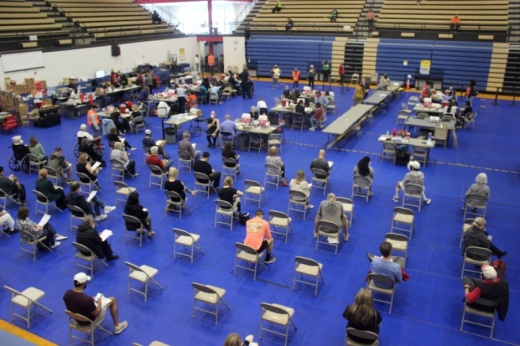The decision to expand registration windows came after APH saw a drop in demand for appointments this week. On April 12, the provider saw more than 10,000 available appointments go unfilled and offered more registration opportunities April 13 and April 15 to fill the remaining slots.
According to local officials, the change—a marked difference from several weeks ago, when thousands remained in queues for available appointments without getting on—is not a sign of vaccine hesitancy, but a sign that supply has caught up with demand.
“I don’t think we have an issue of people not wanting the vaccine. I think we’ve reached that stage where supply and demand are in equilibrium, and that’s okay,” said Mark Escott, Austin-Travis County interim public health authority, at an April 16 news conference.
APH President Stephanie Hayden-Howard said the time has come for APH to shift its strategy to direct community outreach, embracing the organization’s role as a “safety net provider.”
“We’re going to start going into the neighborhood more, working in apartment complexes, being in community centers and changing our hours of operation. We must be flexible. Our goal is to provide vaccines to our community and meet them where they are,” Hayden-Howard said.
Additionally, APH will also now offer second doses to anyone who has received their first dose of the Moderna vaccine, according to APH Assistant Director Cassanra De Leon. This will allow individuals who have traveled out of town to receive vaccines to find a second dose locally.
Now that the community has easier access to vaccines, APH representatives say its focus—and that of the 350-plus additional local vaccine providers—must be on establishing herd immunity, with at least around 70% of residents vaccinated.
“It’s going to be a challenge for us, but we can certainly reach herd immunity here. Looking at some of the national surveys about vaccine hesitancy, Austin and Travis County performed better than anywhere else in the state of Texas, with 85% of respondents indicating their desire to be vaccinated,” Escott said. “But real herd immunity requires global herd immunity, and that's what's going to be a more difficult task to achieve.”





